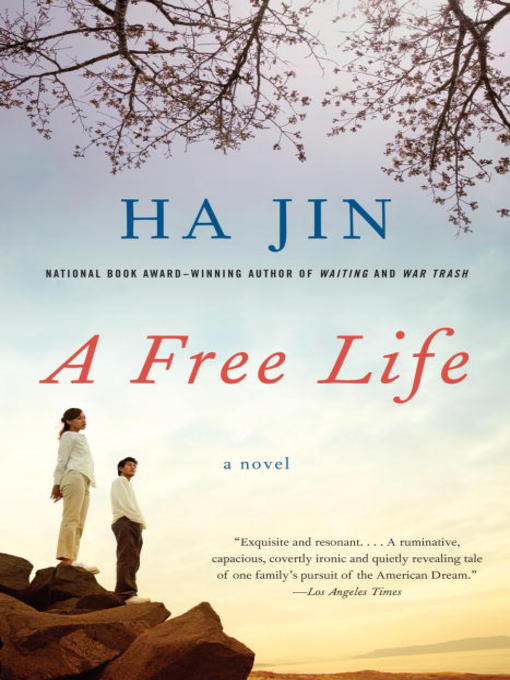
A Free Life
A Novel
کتاب های مرتبط
- اطلاعات
- نقد و بررسی
- دیدگاه کاربران
نقد و بررسی

July 23, 2007
Ha Jin, who emigrated from China in the aftermath of Tiananmen Square, had only been writing in English for 12 years when he won the National Book Award for Waiting
in 1999. His latest novel sheds light on an émigré writer’s woodshedding period. It follows the fortunes of Nan Wu, who drops out of a U.S. grad school after the repression of the democracy movement in China, hoping to find his voice as a poet while supporting his wife, Pingping, and son, Taotao. After several years of spartan living, Nan and Pingping save enough to buy a Chinese restaurant in suburban Atlanta, setting up double tensions: between Nan’s literary hopes and his career, and between Nan and Pingping, who, at the novel’s opening, are staying together for the sake of their young boy. While Pingping grows more independent, Nan—amid the dulling minutiae of running a restaurant and worries about mortgage payments, insurance and schooling—slowly snuffs the torch he carries for his first love. That Nan at one point reads Dr. Zhivago
isn’t coincidental: while Ha Jin’s novel lacks Zhivago
’s epic grandeur, his biggest feat may be making the reader wonder whether the trivialities of American life are not, in some ways, as strange and barbaric as the upheavals of revolution.

Starred review from August 1, 2007
"Crossing over from China to America" describes not only the theme behind this latest work from National Book Awardwinning author Ha ("Waiting") but also his own transition as a storyteller as he breaks away from novels based in China and sets this work in the United States. Keeping to his use of strong male protagonists, Jin opens with Nan Wu, who, with wife Pingping, is reunited for the first time in three years with six-year-old son, Taotao (he's just been flown to the United States from China). Opening in 1989 and spanning nearly a decade, the novel is divided into six parts and multiple brief chapters that follow the Wu family's fierce determination to make a better life for themselves. Though living the "American dream," Jin's characters, as in his other novels, are not without conflict. Nan, for instance, struggles with his passion to become a successful author even as he works to support his family. Transitioning his characters from Chinese immigrants to Chinese Americans, Jin takes his writing to a new level as he skillfully crafts an ambitiously angst-filled yet masterly tale of assimilation overflowing with both heart and culture. Highly recommended for public and academic library fiction and Asian American fiction collections. [See Prepub Alert, "LJ" 7/07.]Shirley N. Quan, Orange Cty. P.L., Santa Ana, CA
Copyright 2007 Library Journal, LLC Used with permission.

Starred review from July 1, 2007
A poet as well as a fiction writer, Ha Jin writes of sacrifice, isolation, and valor with uncommon perception. In his earlier novels, including Waiting (1999), winner of the National Book Award and the PEN/Faulkner Award, and War Trash (2002), also a PEN/Faulkner Award winner, he looks back to China, his homeland. In his seventh work of fiction, Ha Jin anatomizes the immigrant experience. Nan Wu, a Chinese graduate student in Boston, drops out after the Tiananmen Square massacre. He would like to abandon his marriage, too, but his sense of duty toward Pingping and their young son is stronger than his desire for passion and the freedom to write poetry. So Nan laboriouslyprogresses from busboy to chef, then purchases a small Chinese restaurant outside Atlanta, Georgia. He and Pingping work hard, live frugally, and strive to understand their baffling new world, including white friends who adopt a Chinese daughter. While Pingping evinces great strength of character, Nan remains deeply conflicted over his longing for art and his commitment to pragmatism until hisruminations on everything fromthe lives of birds to the differences between Chinese and English precipitate a profound liberation. For Nan, a free life is an honest and creative life. Capacious, pointillistic, empathic, and tender, Ha Jinstaleof one immigrant familys odyssey in America affirms humankinds essential mission, to honor life.(Reprinted with permission of Booklist, copyright 2007, American Library Association.)

























دیدگاه کاربران